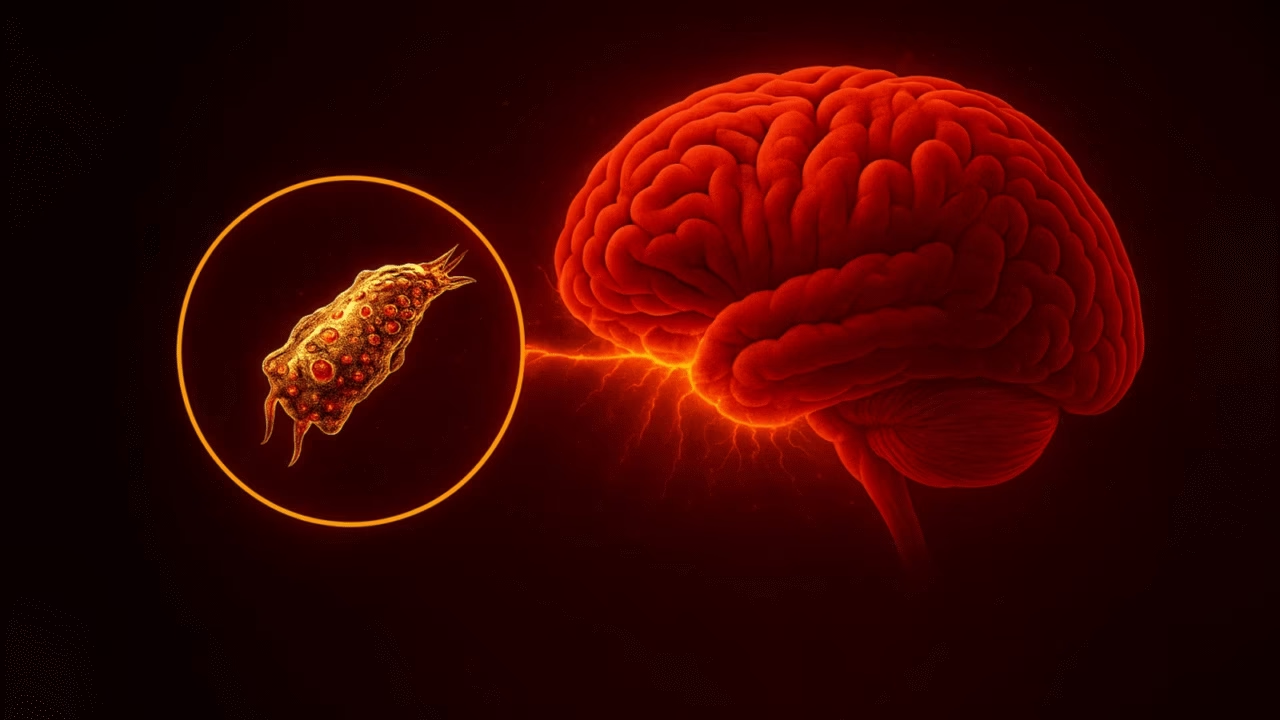Kerala is on high alert after health authorities confirmed a sharp rise in cases of Primary Amoebic Meningoencephalitis (PAM), a brain infection caused by the free-living amoeba Naegleria fowleri. Often referred to as the “brain-eating amoeba,” this microorganism thrives in warm freshwater sources such as lakes, ponds, and poorly treated swimming pools.
The amoeba enters the human body through the nose, traveling to the brain and destroying brain tissue. While infections are extremely rare, they are almost always fatal, with a mortality rate exceeding 95%.
The Situation in Kerala
In 2025 alone, Kerala has reported 42 confirmed cases, with 10 deaths, including children and young adults. The rise has alarmed both medical professionals and the public, given the typically sporadic nature of such infections.
Local health departments have traced many cases back to exposure to unchlorinated water bodies during swimming and bathing. The monsoon season, with its heavy rains and warm, humid conditions, has further increased the risk of contamination.
Government’s Response
The Kerala government has rolled out the “Jalamanu Jeevan” initiative, an awareness campaign urging citizens to avoid swimming in untreated water, ensure proper chlorination in public pools, and maintain hygiene practices. Municipal bodies have also been instructed to step up monitoring of water supplies and recreational water sources.
Health experts are emphasizing early diagnosis as crucial to saving lives, though detecting the infection remains challenging. Symptoms such as severe headache, fever, nausea, vomiting, and stiff neck often resemble other types of meningitis, delaying treatment.
Why the Surge?
Experts attribute the sudden rise to multiple factors:
- Climate change – Rising water temperatures create favorable conditions for amoeba growth.
- Urbanization – Increased use of untreated recreational water sources.
- Lack of awareness – Many people remain unaware of the risks associated with freshwater swimming.
Preventive Measures
Doctors stress that prevention is the best defense, as effective treatment options remain limited. Key recommendations include:
- Avoid swimming or diving in warm freshwater bodies.
- Use properly chlorinated pools only.
- Avoid letting water enter the nose during bathing or swimming.
- Use boiled or distilled water for nasal irrigation.
The Bigger Picture
While Naegleria fowleri infections remain rare globally, the spike in Kerala highlights the growing public health risks tied to climate change and water management. Similar cases have been reported in parts of the U.S., Pakistan, and Bangladesh, indicating that this is not just a local but a global concern.
For Kerala, the priority remains awareness and prevention. With no vaccine and limited treatment options, public cooperation is essential to stop the spread of this deadly infection.

